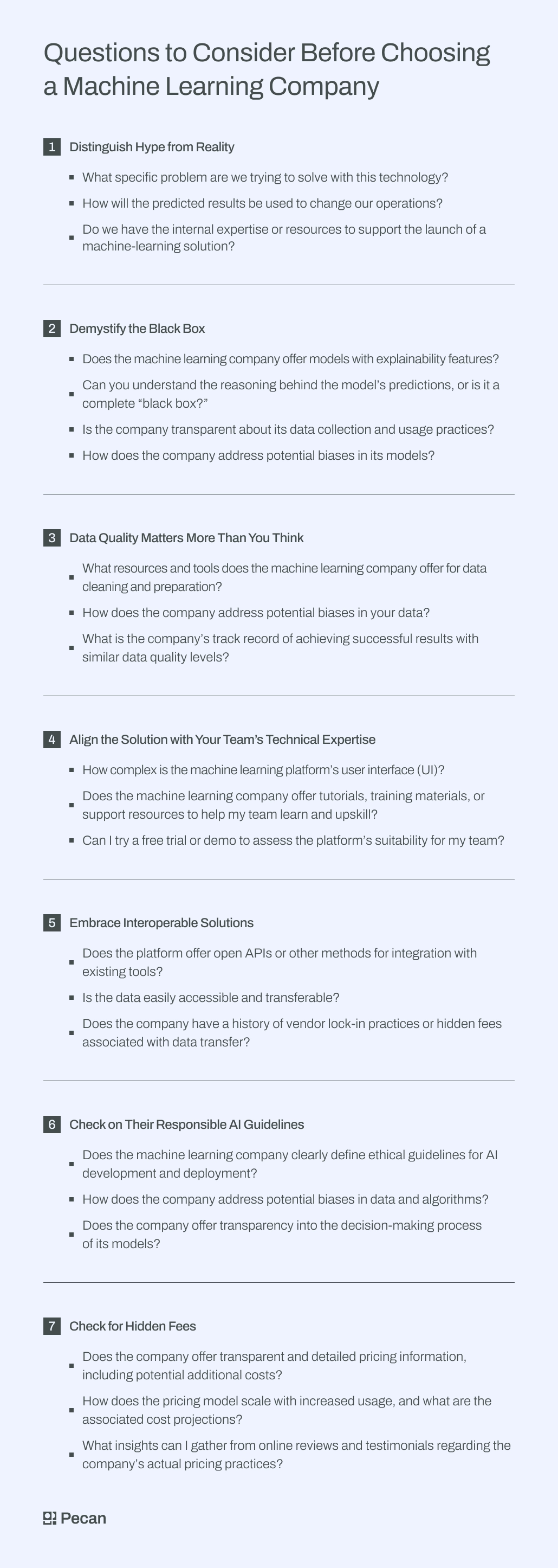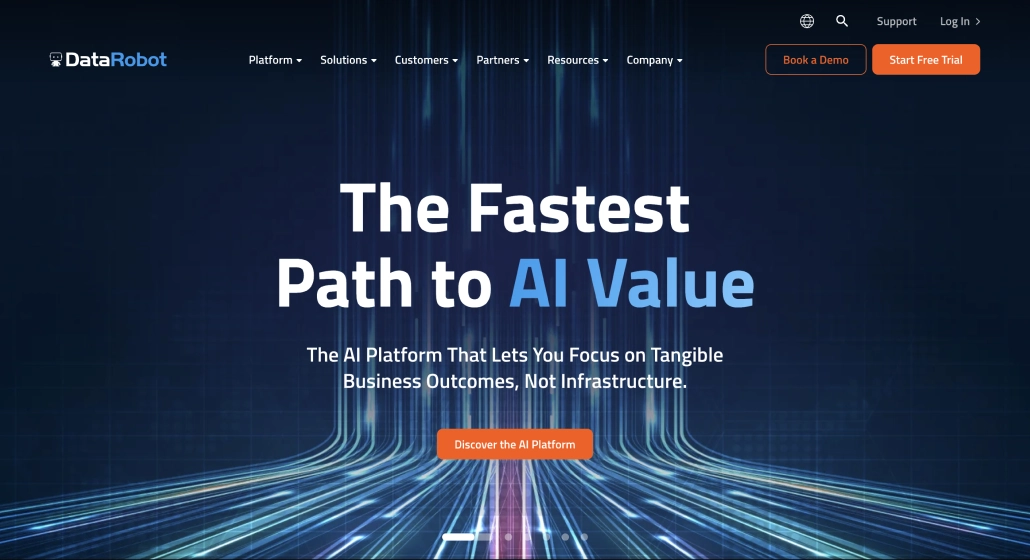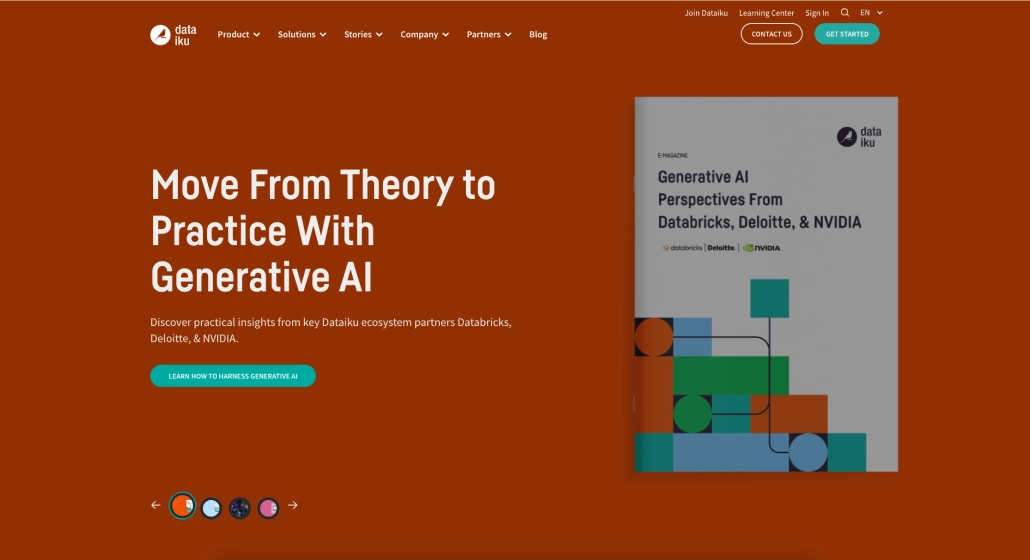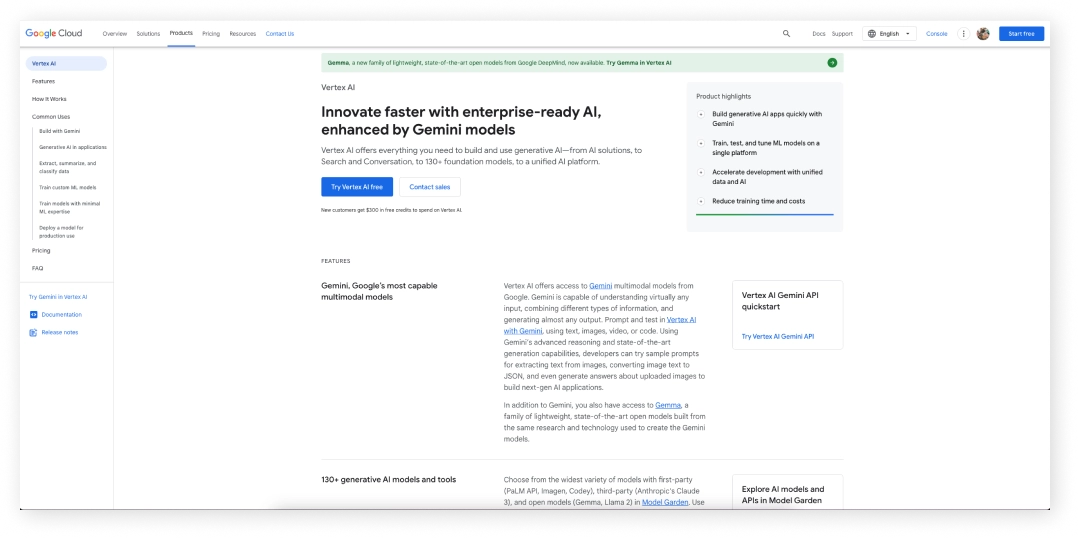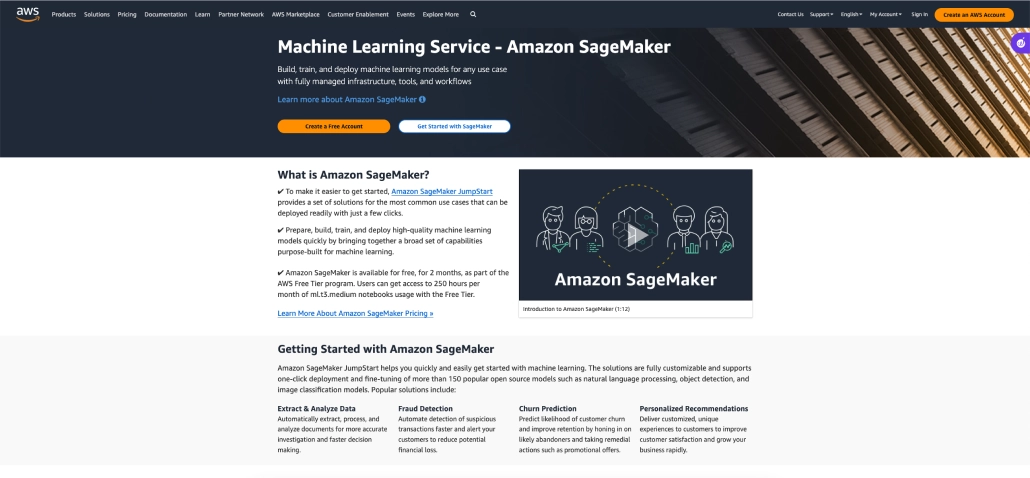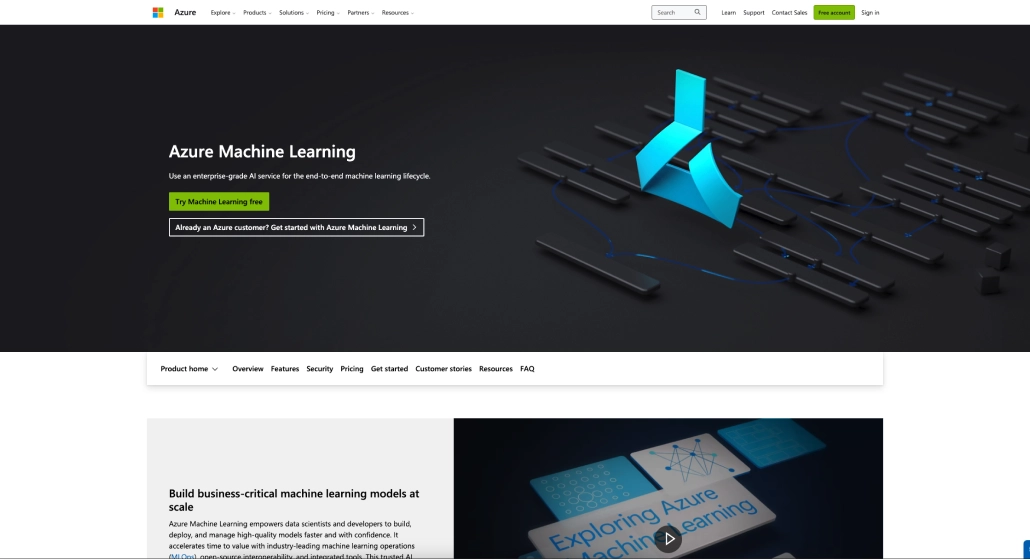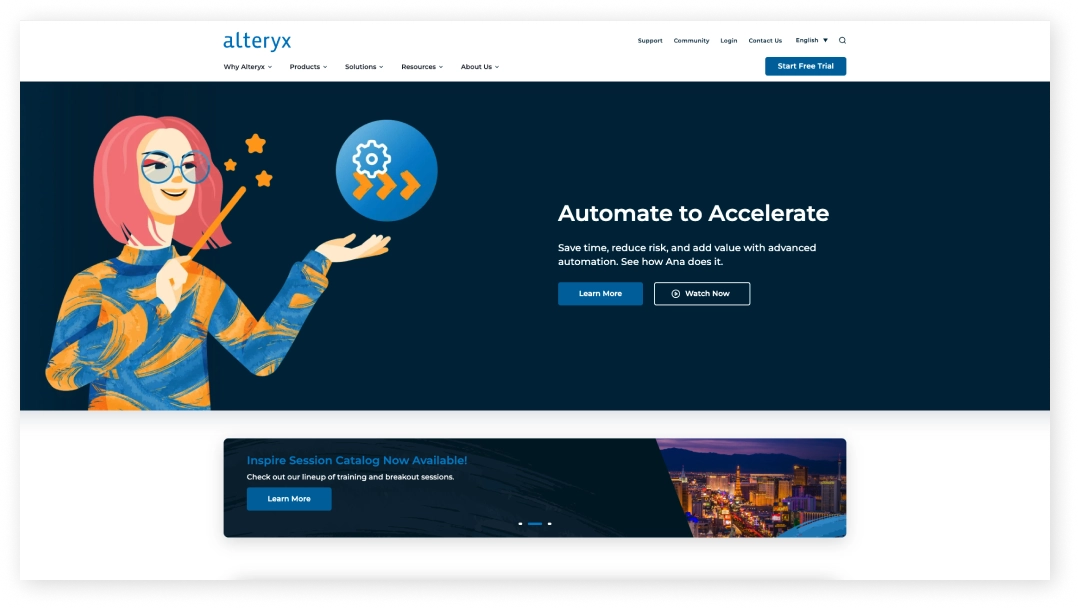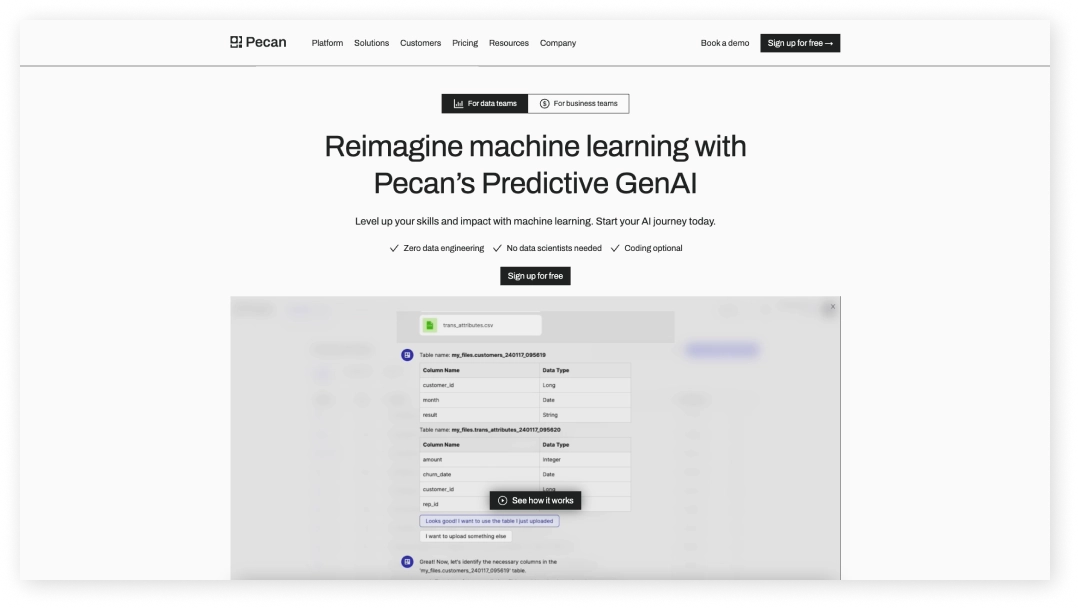In a nutshell:
- The machine learning landscape is akin to the gold rush, with businesses rushing to partner with ML companies.
- It's crucial to distinguish hype from reality and understand the pros and cons before choosing a company.
- Consider factors like data quality, technical expertise, interoperability, responsible AI guidelines, and hidden fees.
- Evaluate different ML companies like DataRobot, Dataiku, Google Vertex AI, Amazon SageMaker, Microsoft Azure Machine Learning, Alteryx, and Pecan before committing.
- Take advantage of free trials and demos to ensure the platform aligns with your needs and capabilities.
Remember learning about the gold rush? Enthusiasts caught wind of an incredible opportunity, eagerly hopped on the figurative and literal bandwagon, and journeyed to California.
The gold rush of the 1800s saw a surge of these hopeful prospectors chasing dreams of riches. Today, a similar phenomenon is unfolding in machine learning (ML). Many businesses, lured by the promise of AI, rush to partner with machine learning software companies.
However, not everything that glitters is gold.
While the potential benefits of machine learning and AI are undeniable, this technology is still young, and unrealistic expectations and hidden complexities can lead to disappointment and wasted resources, especially with dozens of new ML and AI companies sprouting up daily.
Before you get swept away by the hype, it’s essential to approach the machine-learning landscape with a clear understanding of both the pros and cons of working with different machine-learning companies.
This guide explores the critical considerations you need to make — and the potential pitfalls to avoid. By equipping yourself with the necessary knowledge, you can strategically navigate the landscape of machine learning companies and make informed decisions that truly help your business strike it rich.
-

- Photo by Patrick Schneider on Unsplash
7 Considerations When Choosing a Machine Learning Company
1. Distinguish Hype from Reality
Flashy marketing promises of cure-all “AI solutions” are enticing, but don’t be fooled. Many machine learning software companies overhype their capabilities, leaving you with expensive tools and mediocre results.
Take it from the experts: Eric Siegel, a leading consultant and former Columbia University professor who helps companies deploy machine learning, warns against falling for exaggerated software sales pitches. He emphasizes that machine learning involves more than just “technical number crunching.” Rather, it’s about implementing change within your operations.
“Don’t fall for the software sales pitches,” Siegel advises. “This is a consulting gig, not a solution plugin. By definition, a machine learning project is not just the technical number-crunching part; it’s the actual change to operations. And that’s what this practice is about. You can participate in the practice, you do need data scientists, and you can go external.”
Questions to Consider Before Choosing a Machine Learning Company:
- What specific problem are we trying to solve with this technology?
- How will the predicted results be used to change our operations?
- Do we have the internal expertise or resources to support the launch of a machine-learning solution?
2. Demystify the Black Box
Many machine learning models act like “black boxes,” spitting out results without revealing the logic behind them. This lack of transparency can be incredibly concerning, especially when dealing with sensitive data or critical decisions.
Think about the potential consequences: Imagine trusting a machine learning model that wrongly analyzes medical scans, leading to misdiagnosis or delayed treatment. Or a machine learning model that’s trained on biased data. Without understanding the reasoning behind its conclusions, it’s difficult to identify and address potential errors.
Ethical AI experts advocate for transparency in AI projects for several reasons:
- Reduced risk of errors: Understanding the model’s inner workings allows for better troubleshooting and error correction.
- Increased trust and accountability: Transparency fosters trust in the system and enables both internal and external oversight.
- Improved decision-making: Understanding the “why” behind predictions helps humans make informed decisions alongside the model’s recommendations.
Questions to Consider Before Choosing a Machine Learning Company:
- Does the machine learning company offer models with explainability features?
- Can you understand the reasoning behind the model’s predictions, or is it a complete “black box?”
- Is the company transparent about its data collection and usage practices?
- How does the company address potential biases in its models?
-

- Photo by Sergei A on Unsplash
3. Data Quality Matters More Than You Think
While machine learning promises powerful insights, it relies heavily on one crucial element: high-quality data. Just like building a house requires a solid foundation, successful machine learning requires clean, accurate, and unbiased data.
But the old mantra holds: garbage in, garbage out. If your data is messy, incomplete, or riddled with biases, the model’s results will be equally unreliable. It’s common knowledge in the AI community that up to 80% of an engineer’s time can be spent cleaning and preparing data. While data preparation is time-consuming, it’s also vital to the success of any machine learning project.
Don’t fall victim to companies that downplay the importance of data quality. Here’s why it matters:
- Accurate predictions: Clean data enables the model to learn accurate patterns and make reliable predictions. Dirty data leads to inaccurate and misleading results.
- Reduced bias: Biased data can lead to unfair and discriminatory outcomes. Careful data cleaning and bias mitigation are essential for responsible AI.
- Improved efficiency: Spending time cleaning data during implementation can save you from wasting resources and frustrating rework down the line.
→ Read more: The top 10 data preparation tools for effective analysis and insights.
Questions to Consider Before Choosing a Machine Learning Company:
- What resources and tools does the machine learning company offer for data cleaning and preparation?
- How does the company address potential biases in your data?
- What is the company’s track record of achieving successful results with similar data quality levels?
4. Align the Solution with Your Team’s Technical Expertise
Remember the days when machine learning tools were the exclusive domain of data scientists and engineers? Complex platforms and demanding coding skills created a barrier for many businesses.
Thankfully, machine learning companies have improved accessibility. Easier-to-use machine learning tools empower individuals at various skill levels to unlock the power of AI. While this democratization is exciting, it’s crucial to choose the right solution for your team’s specific needs.
Avoid these pitfalls:
- Overly complex platforms: Don’t be tempted by a feature-rich solution with a steep learning curve. Without data scientists or internal resources, complex interfaces might become coding nightmares and hinder your progress.
- Underpowered simplicity: Conversely, overly simplistic platforms might lack the power and customization options for advanced users or use cases.
Questions to Consider Before Choosing a Machine Learning Company:
- How complex is the machine learning platform’s user interface (UI)?
- Does the machine learning company offer tutorials, training materials, or support resources to help my team learn and upskill?
- Can I try a free trial or demo to assess the platform’s suitability for my team?
5. Embrace Interoperable Solutions
Imagine the inefficiency of a business where different departments work in isolated bubbles, unable to share information. This is the danger of working with a closed-off machine learning company. In today’s digital landscape, where the average organization uses over 100 SaaS applications, interoperability is paramount.
Interoperability, in simpler terms, allows your machine-learning solution to talk to other tools in your tech ecosystem. This means:
- Effortless data exchange: Seamless data flow between your machine learning platform and other tools streamlines workflows and boosts efficiency.
- Future-proofing your investment: You can easily switch providers or integrate new tools as your needs evolve, avoiding vendor lock-in and fostering agility.
- Breaking down data silos: A collaborative environment ensures everyone in your organization can access and use the insights generated by your machine learning solution.
Questions to Consider Before Choosing a Machine Learning Company:
- Does the platform offer open APIs or other methods for integration with existing tools?
- Is the data easily accessible and transferable?
- Does the company have a history of vendor lock-in practices or hidden fees associated with data transfer?
6. Check on Their Responsible AI Guidelines
As AI’s capabilities expand, so does the importance of ethical considerations. Be wary of partnering with machine learning companies without clear ethical policies or a history of biased algorithms. Remember, the actual value of machine learning lies not just in its power, but in its responsible application.
“There’s an opportunity here for businesses that want a first-mover advantage in differentiating themselves in the marketplace by using fair and accurate AI,” said Mutale Nkonde, an artificial intelligence policy analyst and founding CEO of AI for the People, in her essay for Harvard Business Review.
In practice, responsible AI looks like:
- Transparency: Demystifying the “black box” and understanding how machine learning solutions reach a conclusion is crucial for building trust and ensuring fairness.
- Data bias mitigation: Responsible AI practices actively address and minimize potential biases in data, preventing discriminatory outcomes.
- Ethical guidelines: A strong commitment to clear ethical guidelines demonstrates a company’s dedication to using AI responsibly and transparently.
On the flip side, the consequences of irresponsible AI can be significant, impacting various aspects across industries. For example, discriminating against candidates of a certain demographic in an interview process can have many consequences. Biased or unreliable outputs can spread misinformation.
Questions to Consider Before Choosing a Machine Learning Company:
- Does the machine learning company clearly define ethical guidelines for AI development and deployment?
- How does the company address potential biases in data and algorithms?
- Does the company offer transparency into the decision-making process of its models?
-

- Photo by Scott Webb on Unsplash
7. Check for Hidden Fees
While machine learning companies offer exciting potential, implementing and maintaining these solutions can be costly, especially for smaller businesses. Hidden fees, complex pricing models, and unexpected charges can quickly drain your budget.
Here’s how to avoid unpleasant financial surprises:
- Demand transparency: Conduct a thorough evaluation of the company’s pricing structure. Seek clear explanations of cost calculations, inquire about potential hidden fees, and look for providers who offer detailed documentation on included services, additional costs, and factors affecting price changes.
- Focus on scalability: Choose a solution that scales with your usage. Understand how pricing changes as your needs evolve and ensure the model provides clear cost projections for increased activity.
- Harness the power of online communities: Leverage online forums, reviews, and testimonials from other businesses using the solution. Real-world experiences can reveal any hidden fees or unforeseen costs you might encounter.
Questions to Consider Before Choosing a Machine Learning Company:
- Does the company offer transparent and detailed pricing information, including potential additional costs?
- How does the pricing model scale with increased usage, and what are the associated cost projections?
- What insights can I gather from online reviews and testimonials regarding the company’s actual pricing practices?
Which Company is Best for Machine Learning?
Many machine learning companies offer exciting potential, but every solution has both advantages and limitations. You'll need to take time to evaluate them carefully. Our top picks include Pecan AI, DataRobot, Dataiku, Google Vertex AI, Microsoft Azure ML, Amazon SageMaker, and Alteryx. Here's why.
DataRobot
DataRobot provides a centralized system for designing, deploying, and monitoring AI and machine learning tools at a large scale, including those that generate content and those that predict outcomes.
Pros:
- Low learning curve and user-friendly interface make it accessible even for non-experts
- Offers a diverse range of prebuilt models and functionalities, catering to various needs and use cases.
- AutoML features automate the machine learning process, reducing development time and effort.
Cons:
- Expensive for smaller businesses or those with limited use cases.
- Prebuilt models and features might not always address all of your team’s requirements.
- Some solutions might require advanced technical expertise to utilize fully.
Dataiku
Dataiku is a machine learning platform designed to be accessible to both technical and non-technical users. This means individuals with coding experience and those without can leverage Dataiku to incorporate data, machine learning, and AI, including generative AI, into their work processes.
Pros:
- Includes data preparation, model development, and deployment within a single environment.
- Accessible to non-coders, coding beginners, and data scientists.
- Integrates with various third-party platforms.
- User-friendly visual environment for building models.
Cons:
- May encounter processing issues when handling large datasets.
- Need to test compatibility with existing infrastructure before committing.
Google Vertex AI
What it does: Google Vertex AI is a cloud-based platform that simplifies creating and testing machine learning models (including large language models) and AI applications. These tools are provided within the Google Cloud console.
Pros:
- Excels in handling large datasets (over 1,000GB), making it suitable for organizations with significant data needs.
- Facilitates fast model building, deployment, and comparison.
- AutoML and a user-friendly environment allow more users to participate in the machine-learning process.
Cons:
- Limited access to certain features; additional features require additional payment.
- Pricing structure is not ideal for small- and medium-sized businesses.
Amazon SageMaker
Amazon SageMaker is a cloud service that simplifies the process of building, training, and deploying machine learning models. This service is designed for data scientists and developers, allowing them to work confidently and efficiently in various development environments.
Pros:
- Seamless integration with the AWS environment.
- Simple yet customizable interface suitable for users of all skill levels.
- Flexible scaling based on project requirements.
Cons:
- May not be well-suited for handling large or unstructured datasets
- Complex pricing structure can lack transparency, potentially leading to challenges in understanding and predicting costs accurately.
Microsoft Azure Machine Learning
Azure Machine Learning is a cloud platform that simplifies and speeds up the entire process of working with machine learning projects, from initial development to deployment.
Pros:
- Enhanced data organization and efficiency of large datasets.
- AutoML capabilities automate the workflow of building business models.
- Support for multiple programming languages.
- User-friendly interface makes it accessible to individuals with varying technical backgrounds.
Cons:
- Limited transparency in AutoML may make it difficult to understand underlying logic.
- Restricted model selection compared to other options in the market.
- Inadequate documentation hinders the ability to learn, troubleshoot, and utilize the platform effectively.
Alteryx
Alteryx simplifies data analysis for analysts by providing a visual “drag-and-drop” interface. This interface allows users to easily prepare, combine, and analyze data by creating automated workflows, increasing efficiency and repeatability.
Pros:
- Comprehensive workflow management and analysis.
- Streamlined data preparation tools for cleaning, transforming, and validating data.
- Intuitive drag-and-drop interface.
- Extensive data source integration, both on-premise and cloud-based, offering diverse connectivity options.
Cons:
- Steeper learning curve for beginners might require dedicated time and resources.
- Potential connectivity issues, particularly those involving APIs or specific third-party providers.
- AI capabilities may require coding knowledge or require paid add-ons/upgrades.
Pecan
Pecan simplifies making predictions and data-driven decisions. It uses company data to build models that forecast future events, helping users make informed choices without needing deep technical knowledge. This platform uses Predictive GenAI and a user-friendly notebook interface in SQL, making it accessible even to those less familiar with coding, as users can even make requests and models simply using natural language.
Pros:
- Accurate predictive analytics, particularly valuable for data and business teams.
- Low-code, SQL-based customization broadens accessibility and enables greater control over the analysis process.
- Predictive GenAI features allow users to identify problems and generate models through natural language.
- Feature importance information provides interpretability and explainability.
Cons:
- Predictive Notebook may require some SQL knowledge to adjust the model training dataset.
- Highly complex models could necessitate more support from the Pecan team.
Before You Commit to a Machine Learning Company
While machine learning offers exciting possibilities, thoughtful planning is essential before embarking on your journey. Carefully research different options, considering factors like transparency, ethical practices, and user-friendliness. Then, evaluate your needs and technical capabilities. Choose a machine-learning platform that aligns with your expertise and data requirements.
Remember, the journey starts with understanding your needs and choosing accordingly. By following these recommendations, you can confidently navigate the machine learning landscape and embark on a path toward data-driven success in the age of AI.
Note: Many companies offer free trials, allowing you to experience different platforms firsthand. Consider exploring Pecan’s free trial to see if its features and user interface align with your needs. You can also schedule a demo anytime — we’re happy to help!

